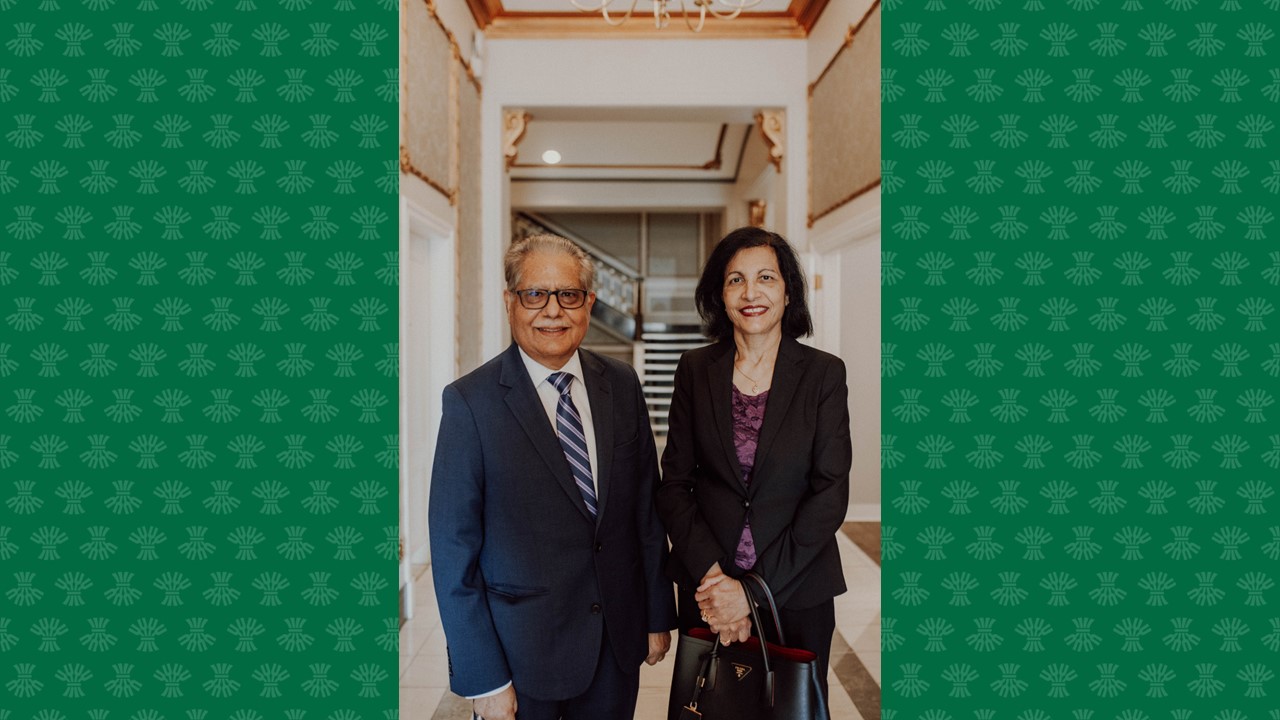
The Drs. Shashi and Pravesh Suri Awards in Undergraduate Medicine: An Ambition Realized
Two Regina physicians were inspired to make a difference for medical students.
Bursaries and scholarships are two of the many ways to encourage excellence in a field of study that is special to you. Bursaries are aimed at students who wouldn’t otherwise have the financial resources to continue their pursuit of knowledge in their chosen fields.
While scholarships can be awarded based upon the same financial criteria, they can also be directed to people who have proven themselves worthy of academic merit through outstanding achievement.
The inspiration for Drs. Shashi and Pravesh Suri to create their awards in undergraduate medicine at the University of Saskatchewan (USask) College of Medicine began several years ago and, with the pandemic beginning to ease, they decided 2022 would be the inaugural year.
Dr. Shashi Suri (MD) works in the Department of Anesthesiology in Regina and is a clinical assistant professor at the College of Medicine. Dr. Pravesh Suri (MD), her husband, is a family physician in Regina. Both of their children graduated from the University of Saskatchewan College of Medicine with great distinction. Rita is currently the director of nephrology at McGill University and Ryan is a general surgeon in Regina.
We chatted with Dr. Shashi Suri about the family’s motivation to create the award.
What inspired you originally?
We’ve been thinking about setting up scholarships and bursaries for a long time. We wanted to support medical education since we are all physicians in the family, and both my children went to USask for medical school. A little bit of help can make a difference in a person’s life. It’s something that came into our heads, and we talked to our children, and they said, “yes, that’s a very good idea.”
How is it set up?
It is an endowment fund where most of the earnings will be going to the scholarship and bursaries every year. We established a minimum amount for the awards, so the recipients are going to get that funding on an annual basis.
Do your motives extend beyond the financial assistance you’re providing?
Well, people are more likely to give when they get something. All these students who are going to become physicians in the future will give back and the community will benefit. They might support other budding doctors, so I think that’s part of the idea behind it.
Was it difficult to create the award?
It wasn’t a difficult thing to do. We were fortunate that we had the money to establish it, that’s why we decided to go ahead with the process. We discussed with my daughter what we wanted to achieve, what kind of students we wanted to help, what kind of criteria we were going to use, so it was a family effort.
How did you go about setting it up?
We worked with Steph Bodnar, a former development officer in the College of Medicine, she was very good to work with. It wasn’t that hard; it took us only three months once we started. We had many conversations back and forth about the details of the gift.
Do you think the awards will continue in the future?
It’s an endowment fund, so it’s supposed to go on forever if it can. If the economy does well and the money grows, they can increase the amount of the scholarship and bursaries, or they can establish one or two ad hoc scholarships. That’s up to the college. We established the minimum, but they can increase it if they want to, or they can add more recipients.
Do you think this will serve as a model for others to create this kind of award?
I hope so! When you plant the seeds, sometimes people may think, “this is another way we can help out.” It’s good to set an example, but we can’t predict what will happen.
If someone came to you with a similar idea for creating an award, what would be your advice to them?
I will tell them sure, go ahead and do it. They have to decide how much money they’re going to donate and they have to establish their criteria for the award.
We in the profession have been established as doctors for so long, we can help the new doctors coming through. This award is something that gives back, as the recipients are all going to be good doctors, making a good living, so the people who receive the scholarships can go on and start something similar of their own.
Are you happy with the outcome?
We’re very happy we did it. It gives us mental happiness that we are trying to do something good for some people who may be in need. We wanted to create it in our lifetime so that we will have the opportunity to see these doctors graduating, maybe meet them, and know that we have done something to help.
